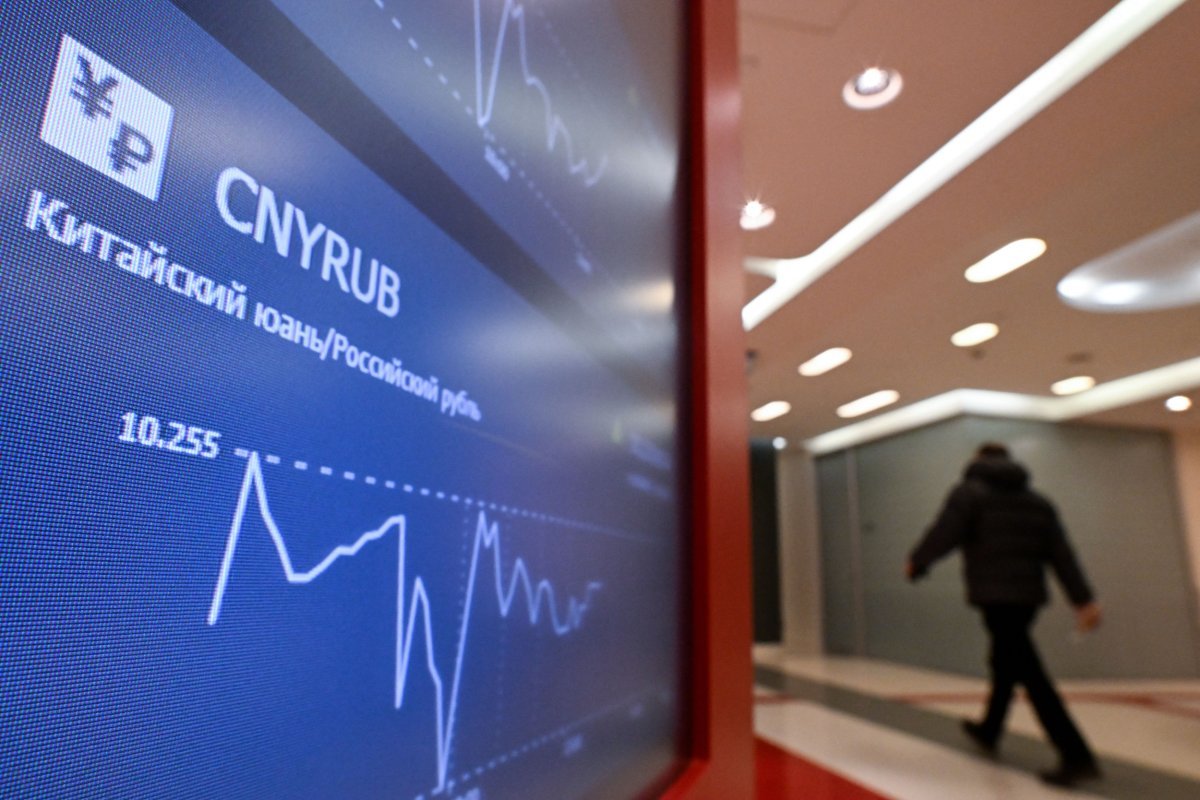Chinese banks have tightened their restrictions on payments from Russia, it has been reported, as sanctions due to Vladimir Putin‘s full-scale invasion of Ukraine threaten commerce between the countries.
The Russian president has boasted of ballooning trade between the two countries, but the Chinese are becoming increasingly concerned about falling foul of Western sanctions that are intended to choke off Moscow’s war machine.
Business newspaper Kommersantreported that restrictions by banks in China have been growing since December 2023, when U.S. President Joe Biden issued an executive order that could deny Chinese institutions access to the U.S. financial system if they have been involved in trade linked to Russia’s military industry.

KIRILL KUDRYAVTSEV/Getty Images
The Russian division of the Bank of China last month stopped processing yuan payments with Russian banks that had been sanctioned by the U.S. ICBC, China CITIC Bank and most other Chinese lenders have made similar moves.
Kommersant reported on July 29 that it is becoming even more difficult for Russian companies to make cross-border payments in the Chinese currency. It said that around 80 percent of payments in yuan are being returned to Russia and the process of a transfer can go on for several weeks and then be canceled without a reason.
An unnamed source told the newspaper: “Everyone will take their commission, but the payment will not be executed.”
Alexei Sapozhnikov, managing partner of the consulting company Sapozhnikov and Partners, told the paper that the banks do not ask for anything, the money for a transaction simply stays in correspondent accounts for up to 40 days and then returns.
This is forcing Russian companies to resort to intermediaries, or “trading houses,” which not only deal with payments but also move goods, although this increases transactional costs by up to 10 percent, Kommersant reported.
“The key trouble in payments between Chinese and Russian companies is unpredictability,” Pavel Bazhanov, a Russian lawyer who provides legal support for Russian businesses in China and the wider region, told Newsweek. “Any trade is based on a presumption that the buyer would receive goods and the seller would receive a payment for the goods provided within a reasonable time,” he said.
“The sanctions disrupt ordinary trade—any Chinese business cannot be sure that the payment from Russia will be delivered at all or within a certain time or on previously agreed terms and conditions.”
He said there are still options to receive payments from Russia in Chinese yuan or Russian rubles. For instance, a Chinese company can open a bank account in VTB Shanghai Bank, which is Chinese subsidiary bank of the Russian VTB Bank.
Another option is the use of the relatively small Chinese rural banks near the Russian-Chinese frontier that have little interest in U.S.-China trade, but rely mostly on clients in cross-border business.
“Even if all Chinese banks stop handling all payments from or to Russia, Russian and Chinese companies would somehow find a way to do business. But as a result, this unpredictability, new modes of payments, will increase transactional costs and make Chinese imports more expensive for the Russian market,” he said.
Oleg Ushakov, founder of Russian law firm Sagrada Legal, told Kommersant the issue of cross-border payments may one day be solved via digital assets and cryptocurrencies.
However, at the moment because digital assets require the registration of foreign counterparties on Russian platforms, these may risk secondary sanctions.
Newsweek contacted Russia’s finance ministry for comment.


